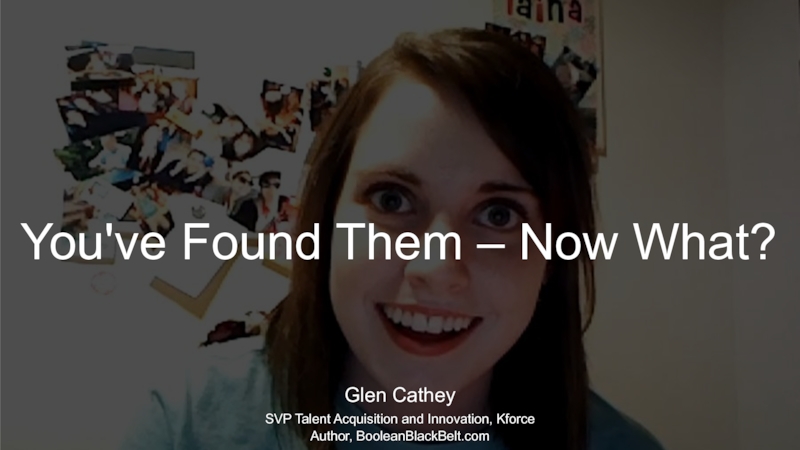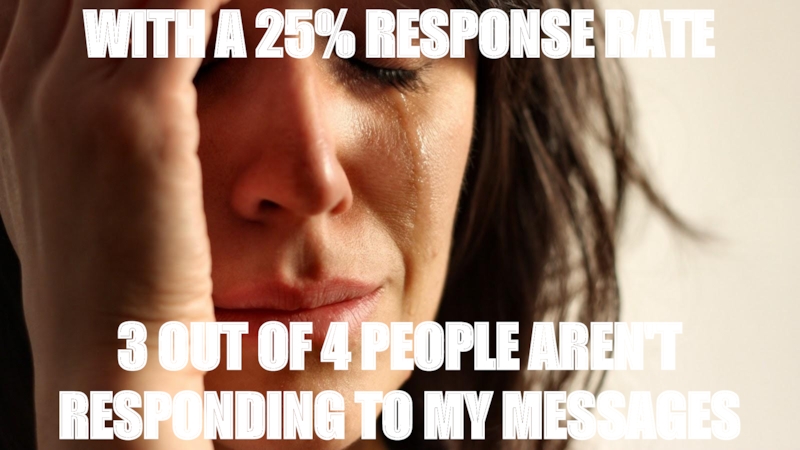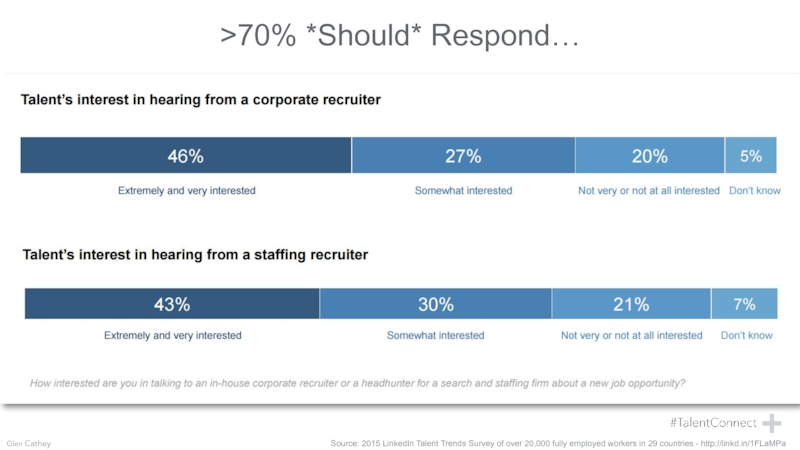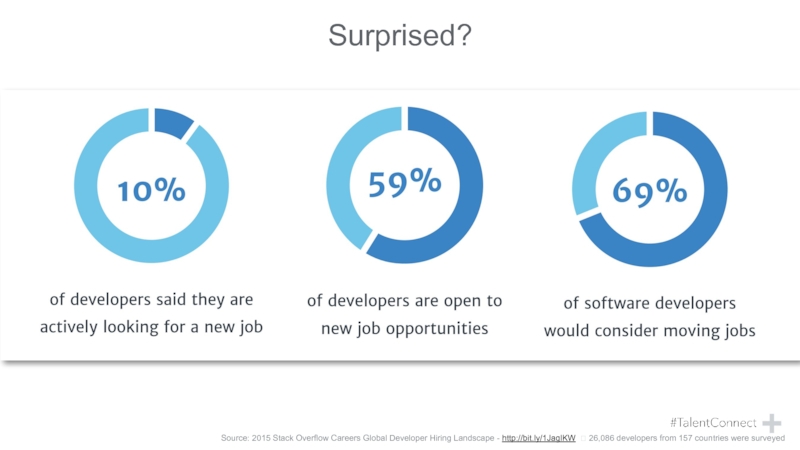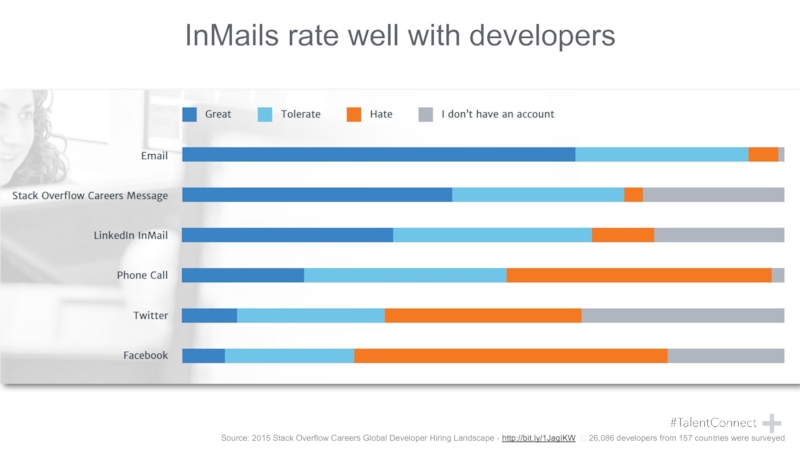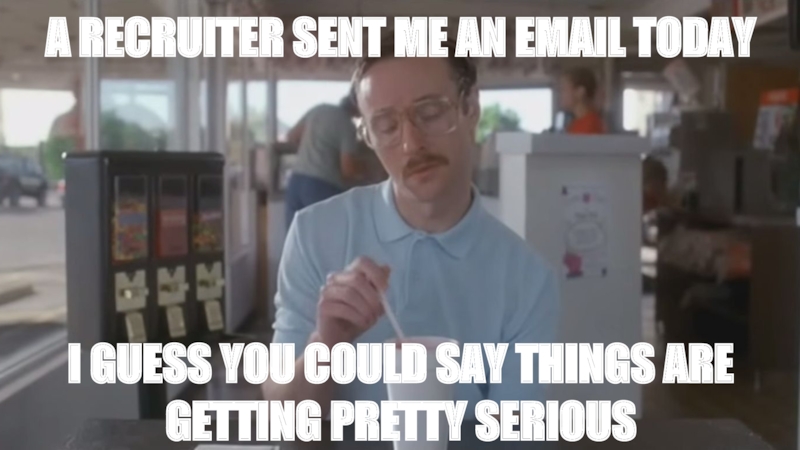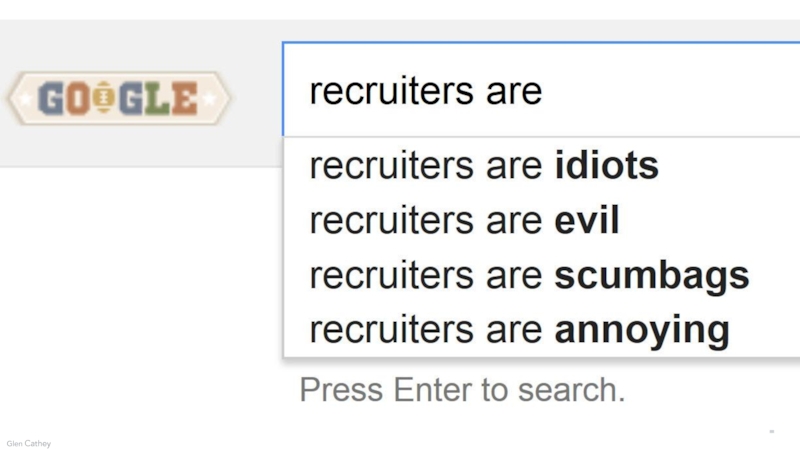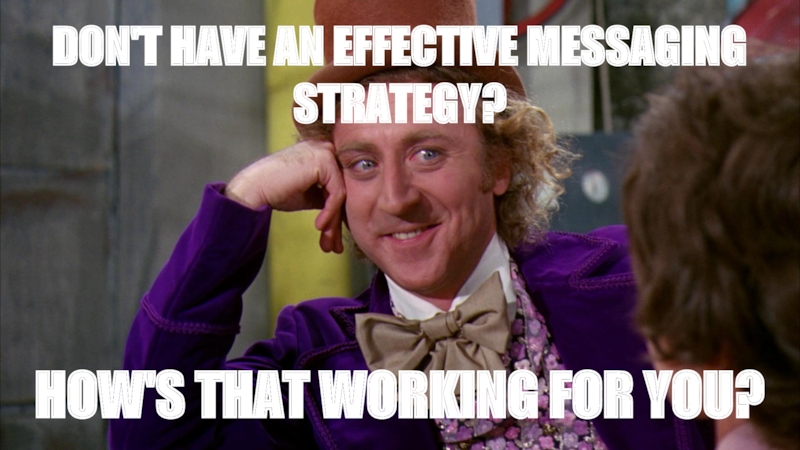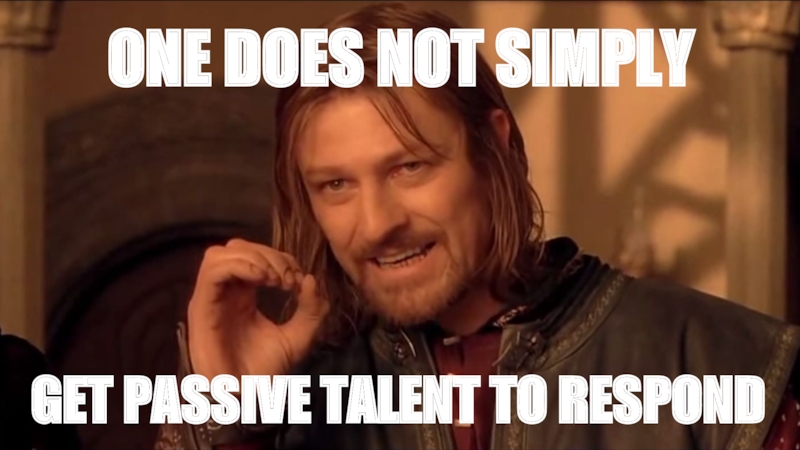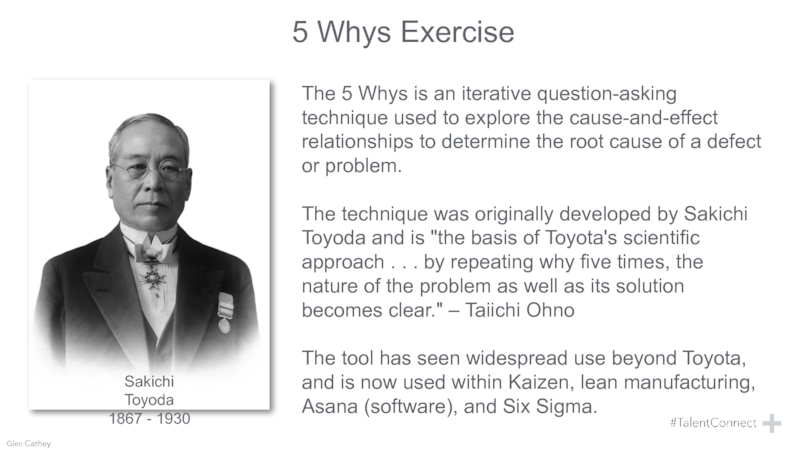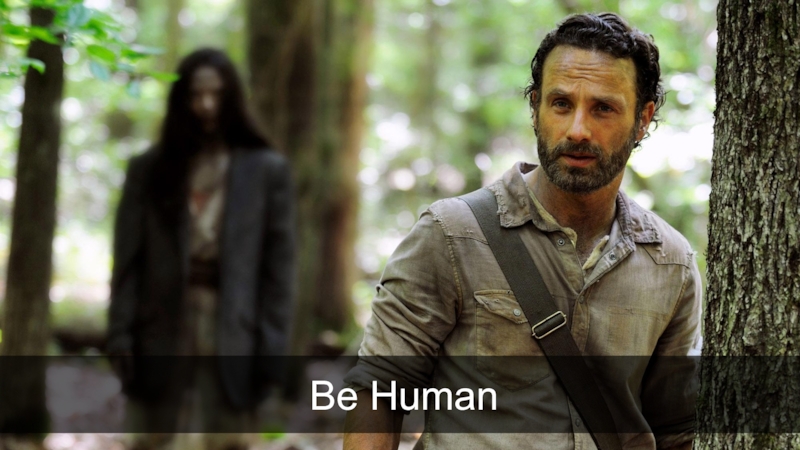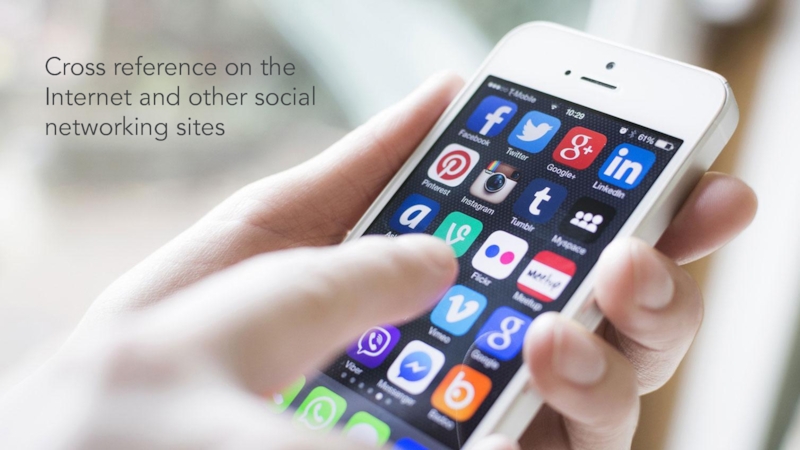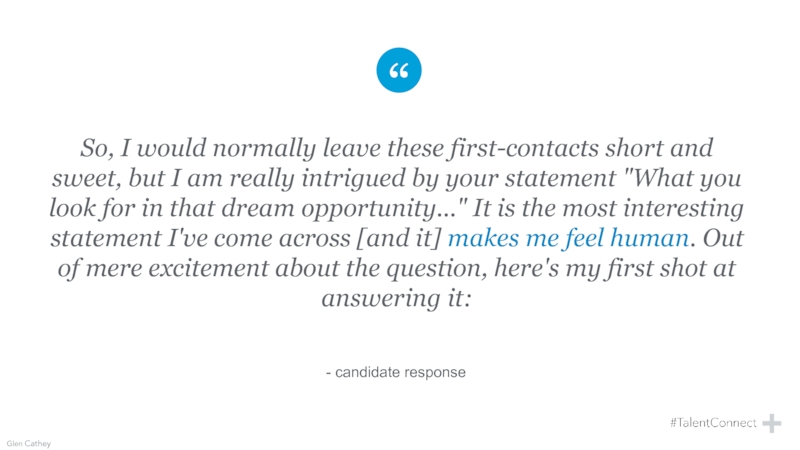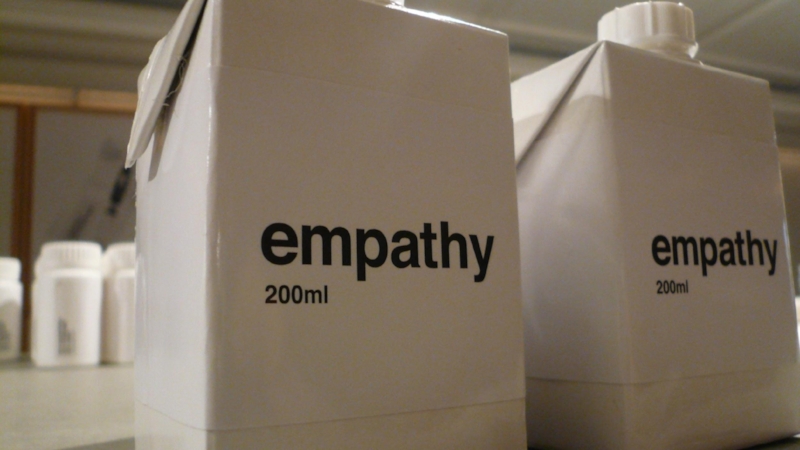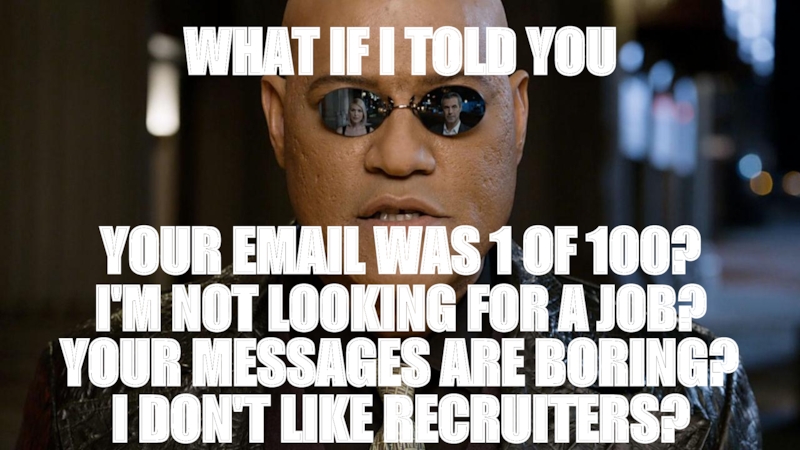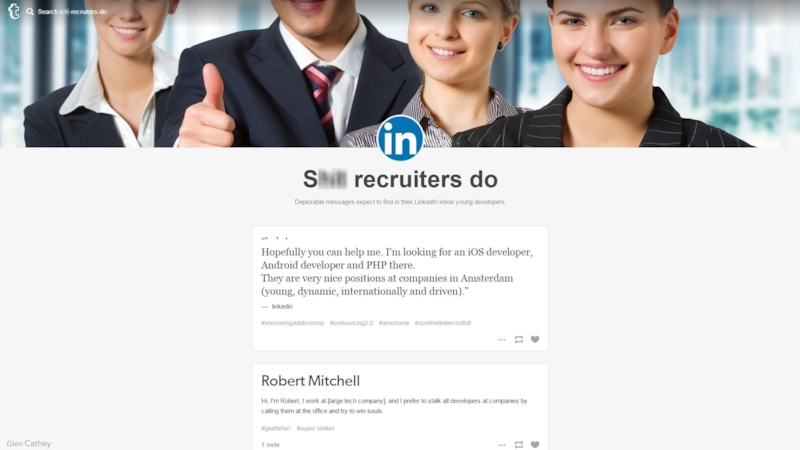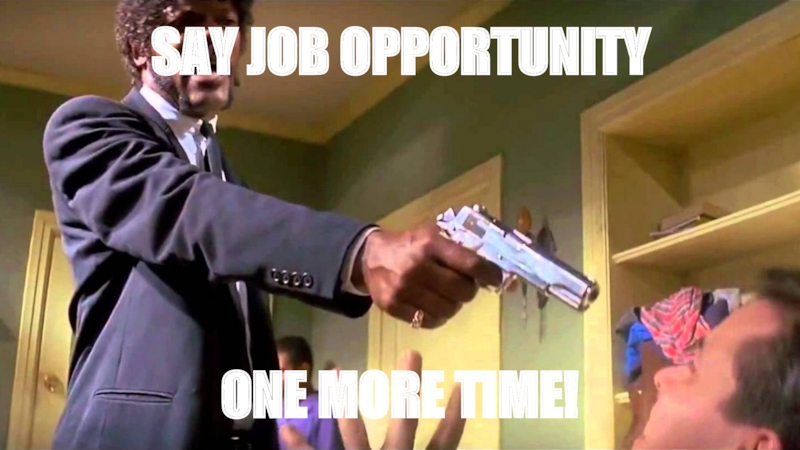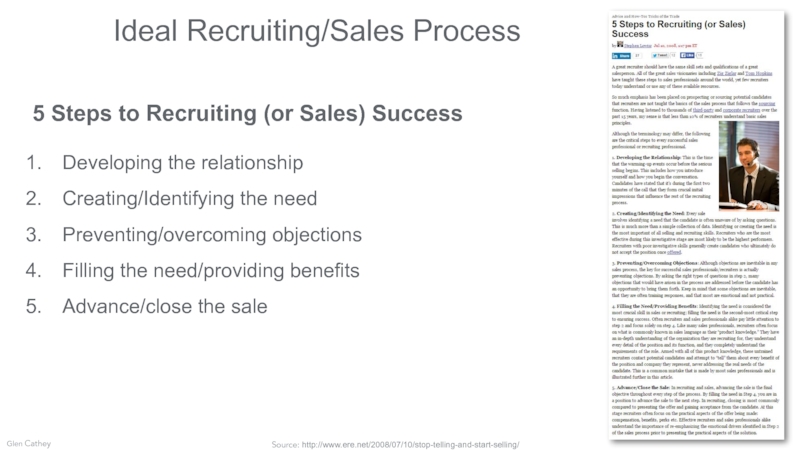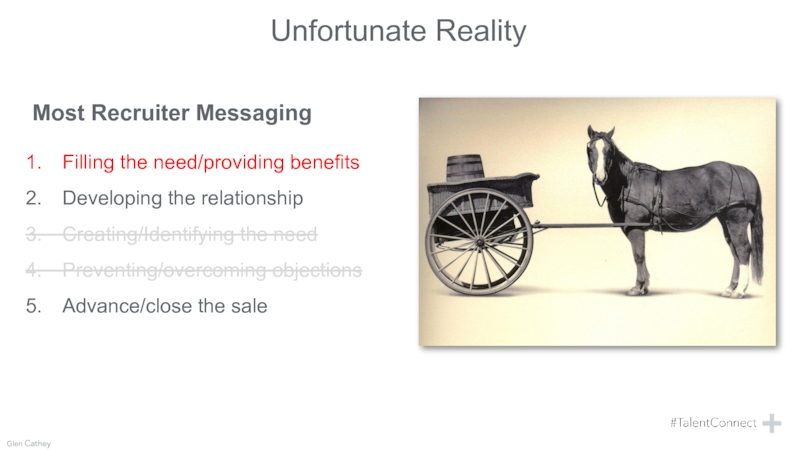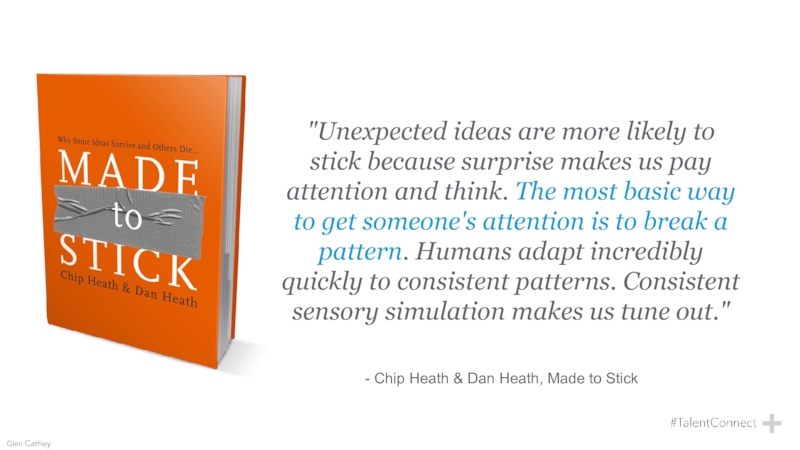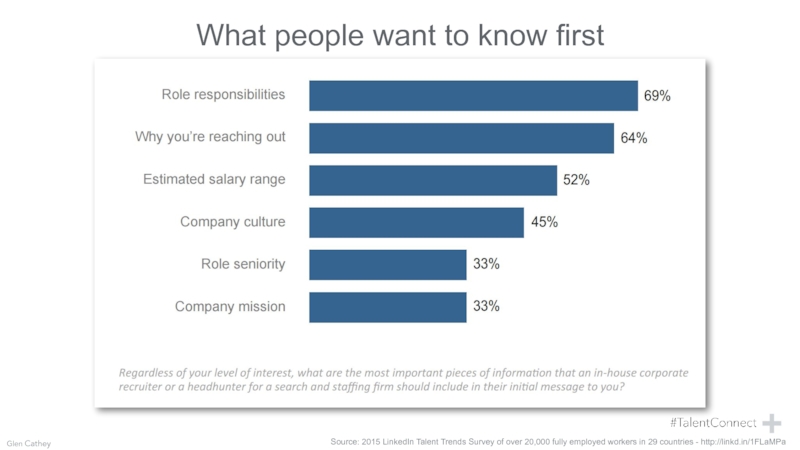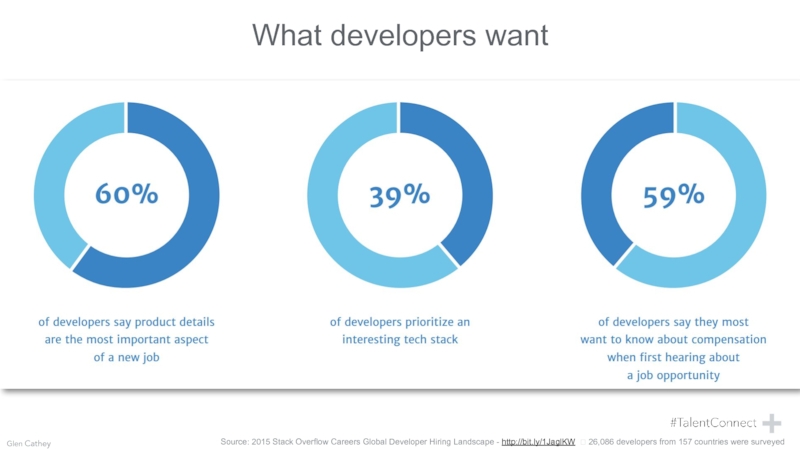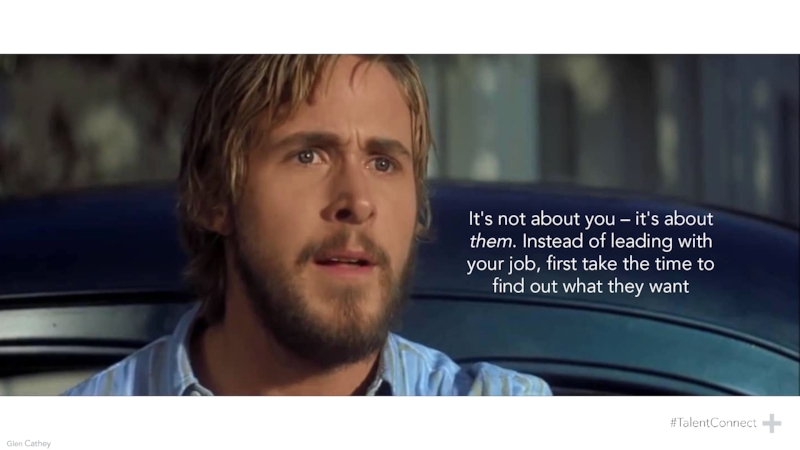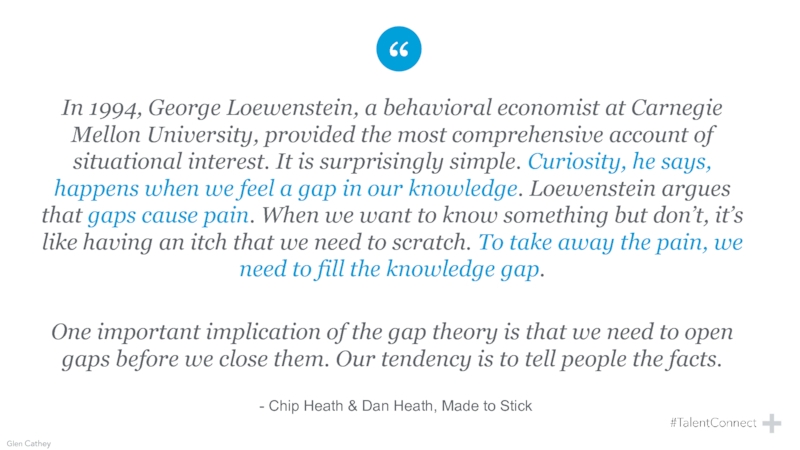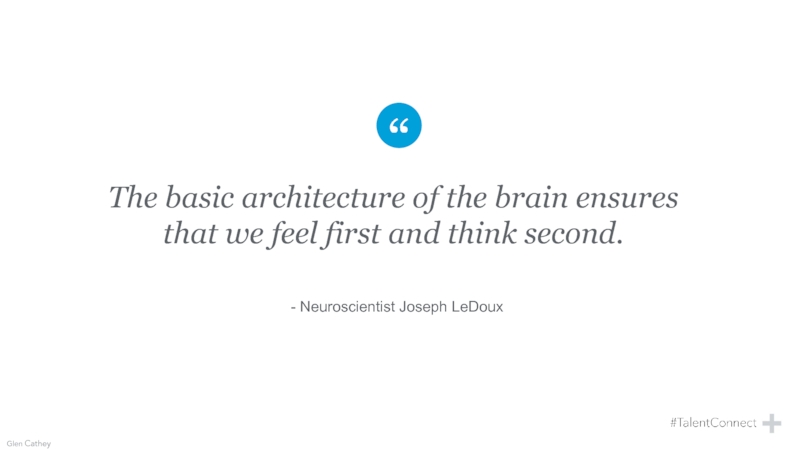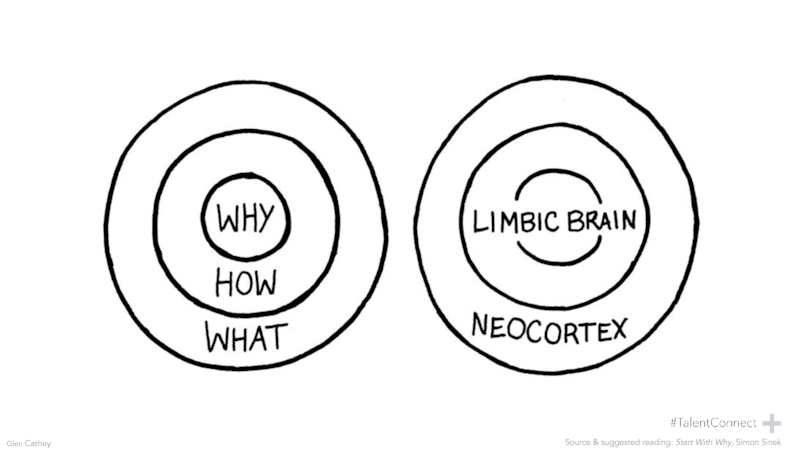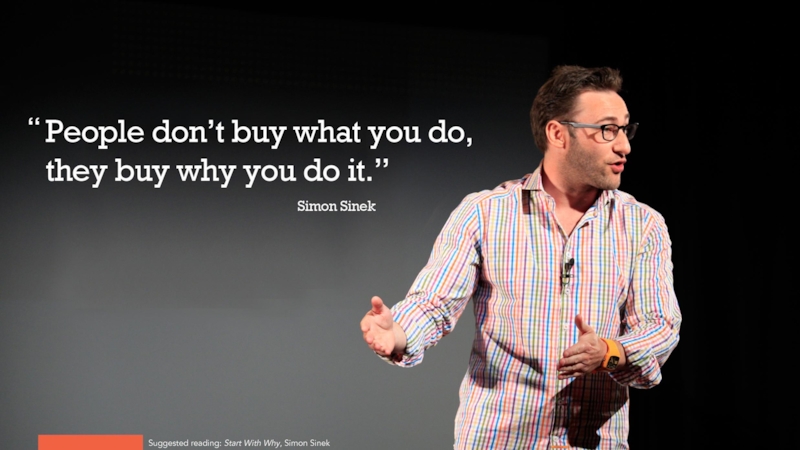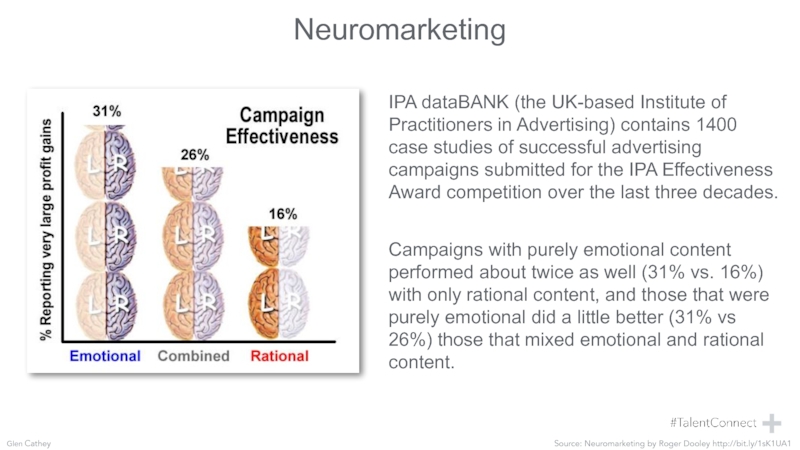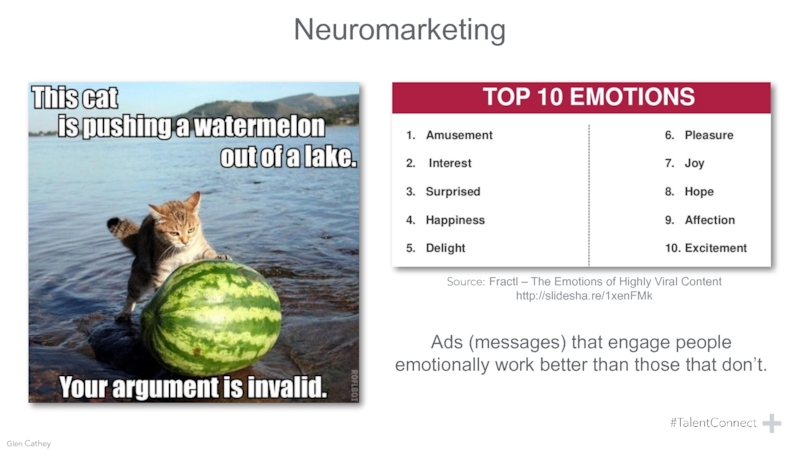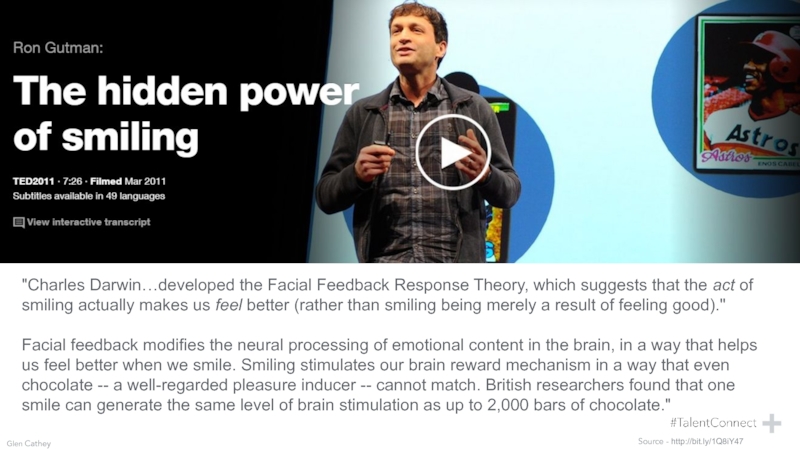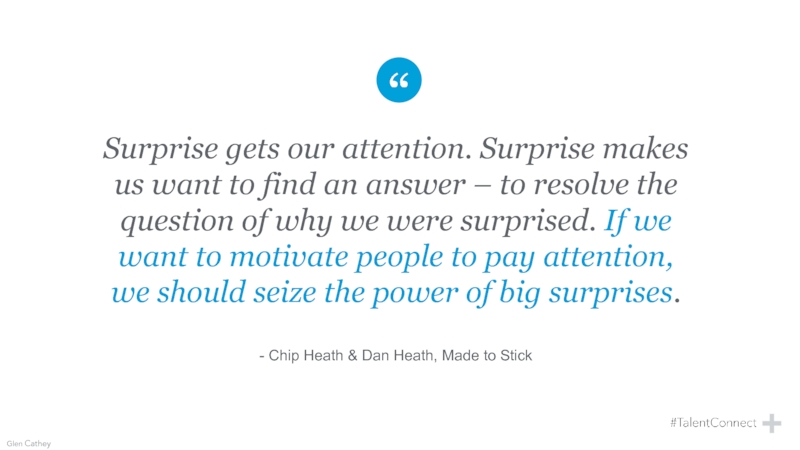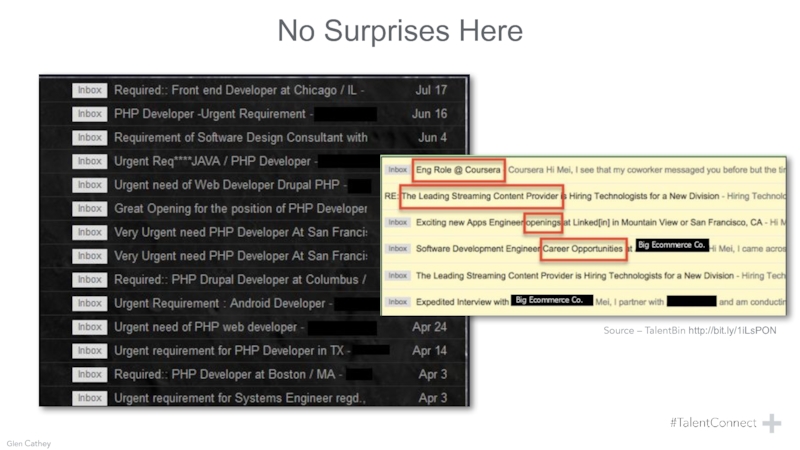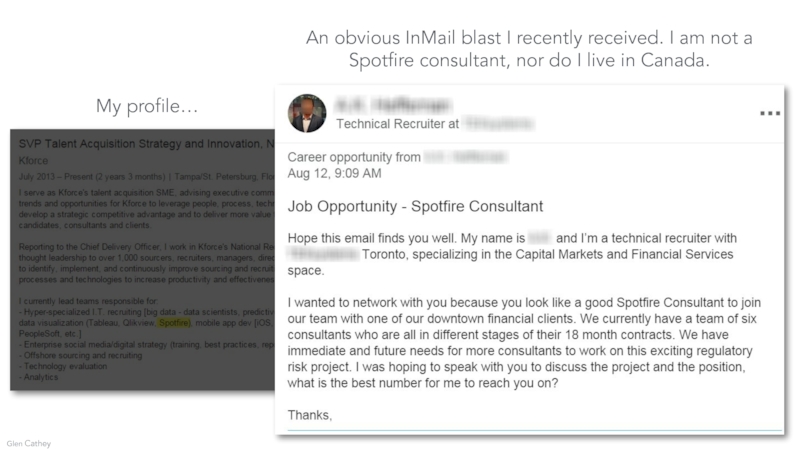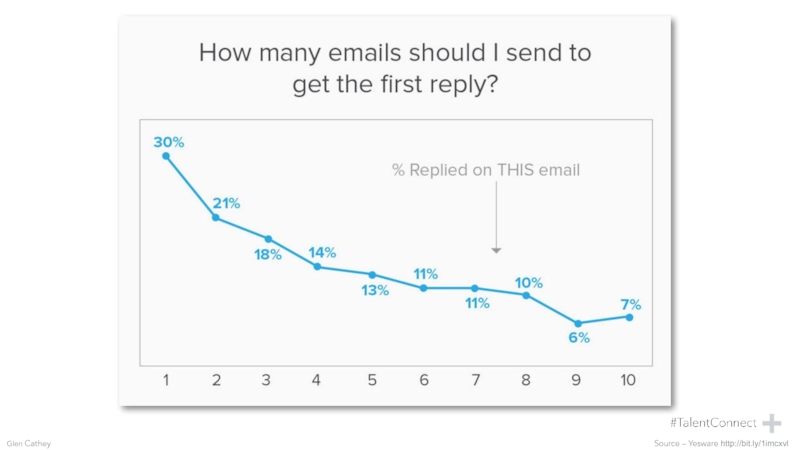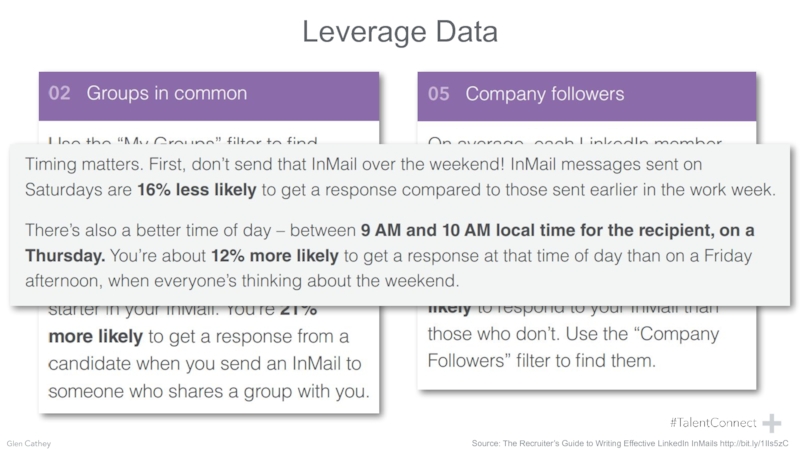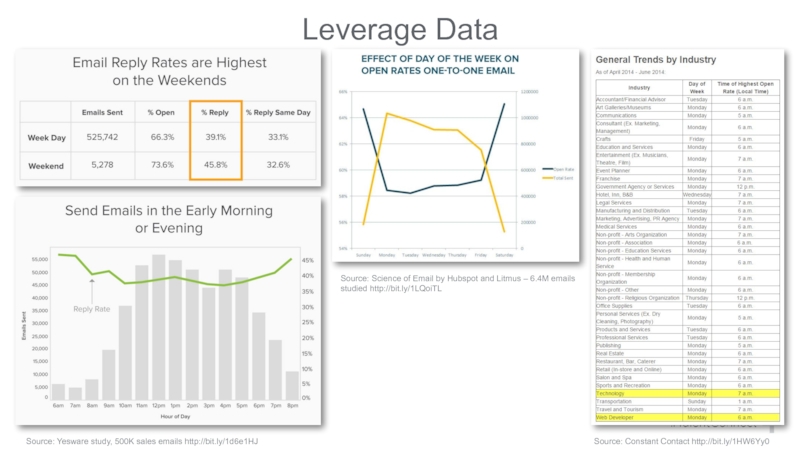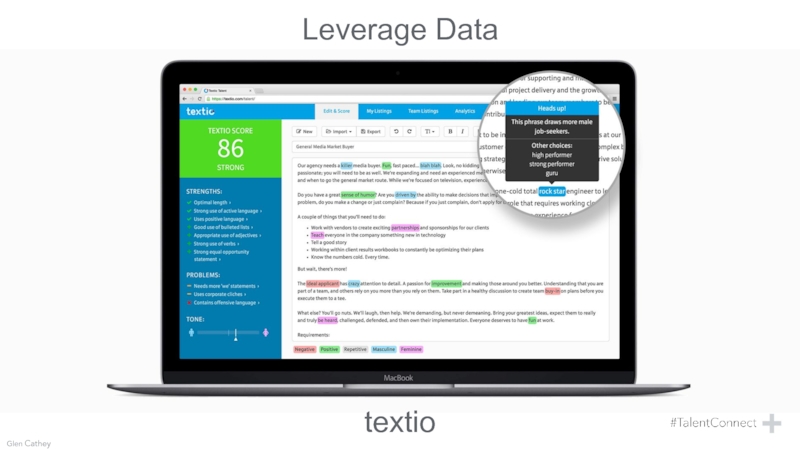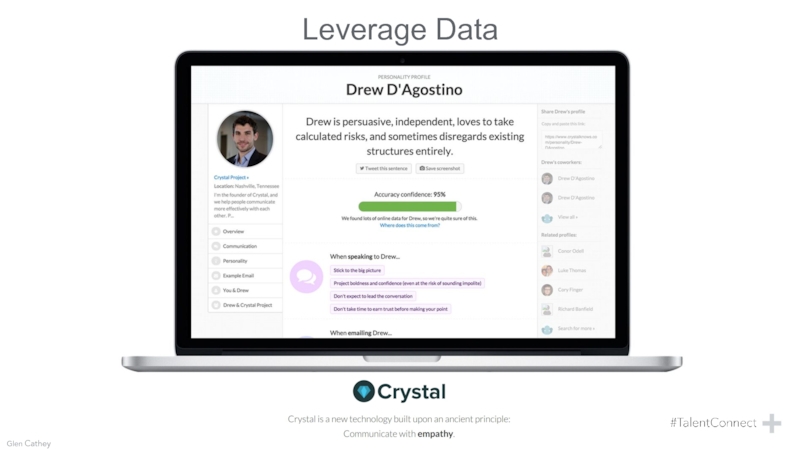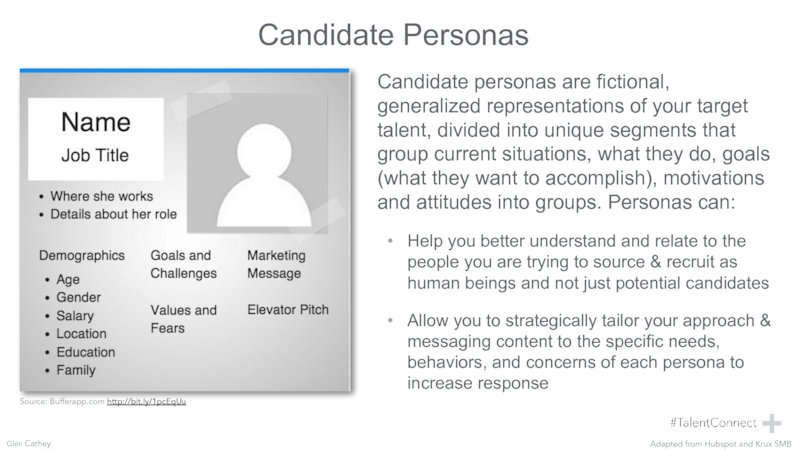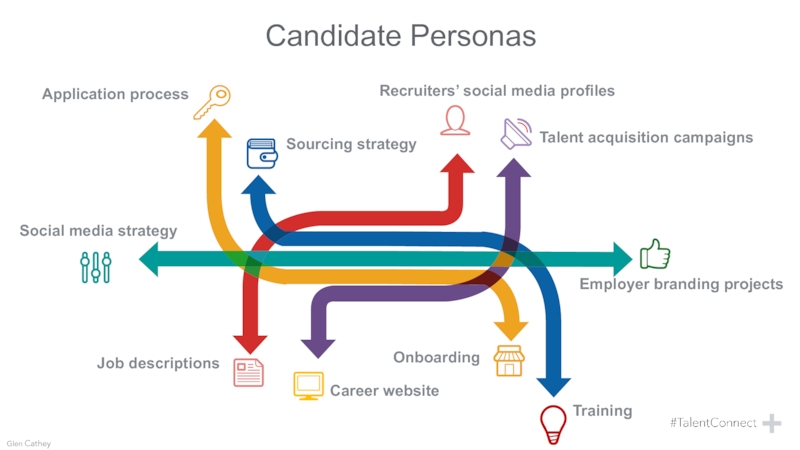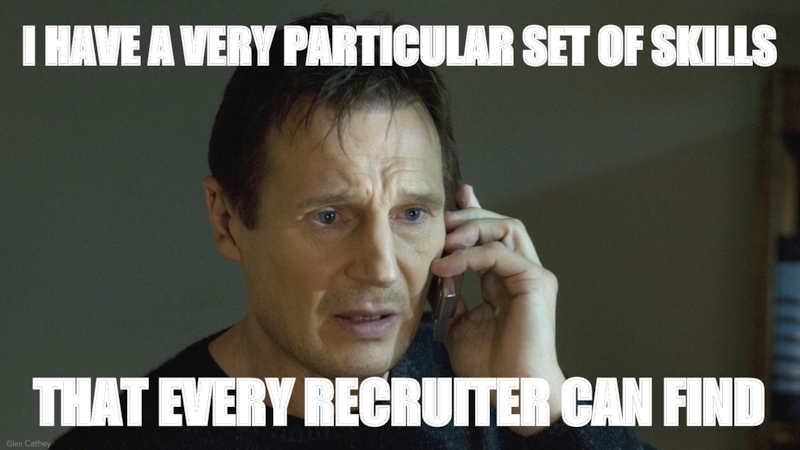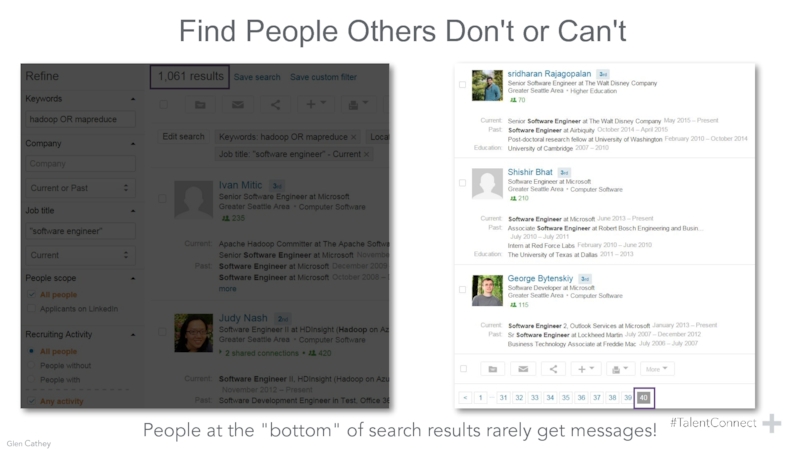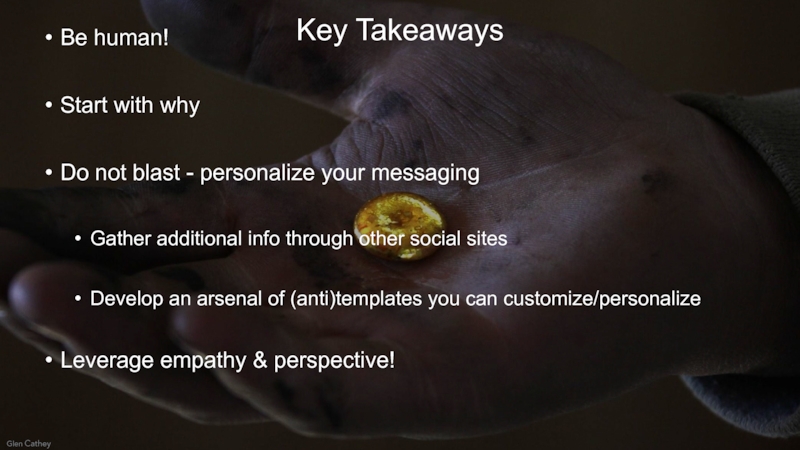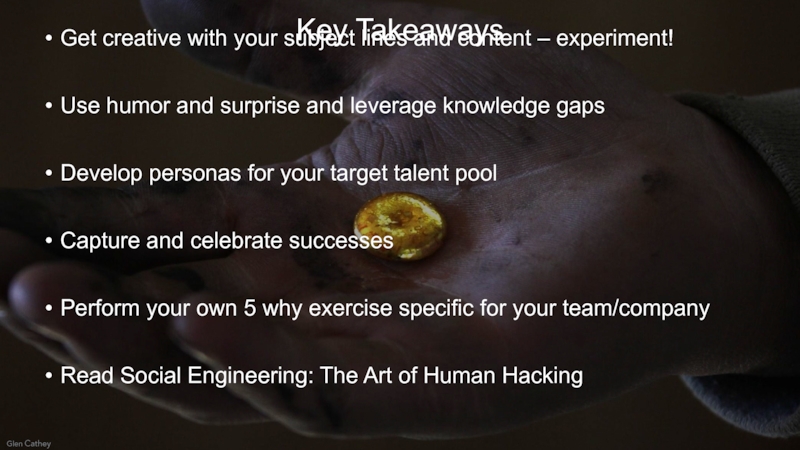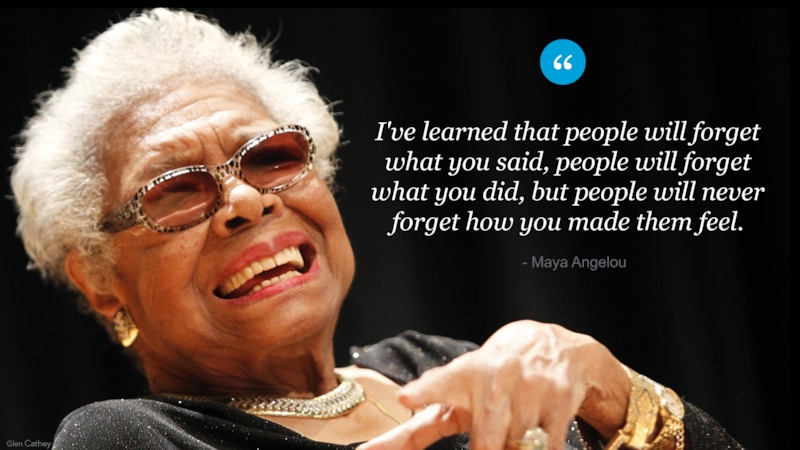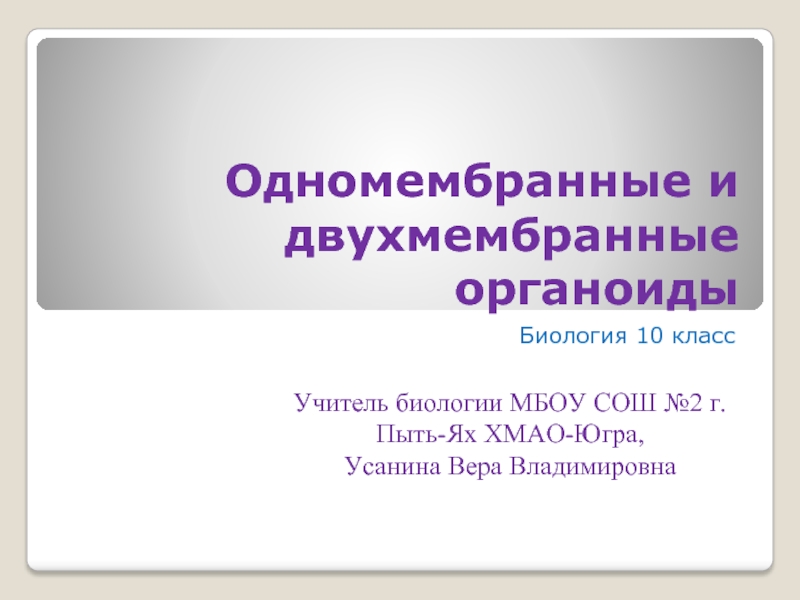- Главная
- Разное
- Дизайн
- Бизнес и предпринимательство
- Аналитика
- Образование
- Развлечения
- Красота и здоровье
- Финансы
- Государство
- Путешествия
- Спорт
- Недвижимость
- Армия
- Графика
- Культурология
- Еда и кулинария
- Лингвистика
- Английский язык
- Астрономия
- Алгебра
- Биология
- География
- Детские презентации
- Информатика
- История
- Литература
- Маркетинг
- Математика
- Медицина
- Менеджмент
- Музыка
- МХК
- Немецкий язык
- ОБЖ
- Обществознание
- Окружающий мир
- Педагогика
- Русский язык
- Технология
- Физика
- Философия
- Химия
- Шаблоны, картинки для презентаций
- Экология
- Экономика
- Юриспруденция
You've Found Them – Now What? презентация
Содержание
- 1. You've Found Them – Now What?
- 3. WITH A 25% RESPONSE RATE 3 OUT OF 4 PEOPLE AREN'T RESPONDING TO MY MESSAGES
- 4. >70% *Should* Respond… Source: 2015 LinkedIn Talent
- 5. Surprised? Source: 2015 Stack Overflow Careers Global
- 6. InMails rate well with developers Source: 2015
- 7. A RECRUITER SENT ME AN EMAIL TODAY
- 8. BRACE YOURSELVES INMAILS ARE COMING
- 10. Glen Cathey
- 11. DON'T HAVE AN EFFECTIVE MESSAGING STRATEGY? HOW'S THAT WORKING FOR YOU?
- 12. ONE DOES NOT SIMPLY GET PASSIVE TALENT TO RESPOND
- 13. 5 Whys Exercise Sakichi Toyoda 1867 -
- 14. Problem: I don't get 100% response to my InMails
- 15. Be Human Be Human
- 16. Cross reference on the Internet and other social networking sites
- 17. So, I would normally leave these first-contacts
- 20. WHAT IF I TOLD YOU YOUR EMAIL
- 21. Glen Cathey
- 22. Ain't nobody got time for that SAY JOB OPPORTUNITY ONE MORE TIME!
- 23. Ideal Recruiting/Sales Process 5 Steps to Recruiting
- 24. Most Recruiter Messaging Filling the
- 26. "Unexpected ideas are more likely to stick
- 27. What people want to know first Source:
- 28. What developers want Source: 2015 Stack Overflow
- 29. Glen Cathey It's not about you –
- 31. In 1994, George Loewenstein, a behavioral economist
- 32. The basic architecture of the brain ensures
- 33. Source & suggested reading: Start With Why, Simon Sinek Glen Cathey
- 34. Suggested reading: Start With Why, Simon Sinek
- 35. IPA dataBANK (the UK-based Institute of Practitioners
- 36. Ads (messages) that engage people emotionally work
- 37. Source - http://bit.ly/1Q8iY47 "Charles Darwin…developed the Facial
- 38. Surprise gets our attention. Surprise makes us
- 39. No Surprises Here Source – TalentBin http://bit.ly/1iLsPON Glen Cathey
- 40. My profile… An obvious InMail blast I
- 41. YOU SHALL NOT BLAST!
- 42. Energy and persistence conquer all things. - Benjamin Franklin
- 43. Source – Yesware http://bit.ly/1imcxvl Glen Cathey
- 44. Leverage Data Source: The Recruiter’s Guide to Writing Effective LinkedIn InMails http://bit.ly/1IIs5zC Glen Cathey
- 45. Leverage Data Source: Yesware study, 500K sales
- 46. Leverage Data textio Glen Cathey
- 47. Leverage Data Glen Cathey
- 48. Candidate personas are fictional, generalized representations of
- 49. Talent acquisition campaigns Recruiters’ social
- 50. I HAVE A VERY PARTICULAR SET OF SKILLS THAT EVERY RECRUITER CAN FIND Glen Cathey
- 51. Find People Others Don't or Can't
- 52. Be human! Start with why Do
- 53. Key Takeaways Get creative with your
- 54. I've learned that people will forget what
- 55. Be Human Glen Cathey
Слайд 1
Glen Cathey
SVP Talent Acquisition and Innovation, Kforce
Author, BooleanBlackBelt.com
You've Found Them –
Слайд 4>70% *Should* Respond…
Source: 2015 LinkedIn Talent Trends Survey of over 20,000
Glen Cathey
Слайд 5Surprised?
Source: 2015 Stack Overflow Careers Global Developer Hiring Landscape - http://bit.ly/1JaglKW
Слайд 6InMails rate well with developers
Source: 2015 Stack Overflow Careers Global Developer
Слайд 135 Whys Exercise
Sakichi Toyoda
1867 - 1930
The 5 Whys is an iterative
The technique was originally developed by Sakichi Toyoda and is "the basis of Toyota's scientific approach . . . by repeating why five times, the nature of the problem as well as its solution becomes clear." – Taiichi Ohno
The tool has seen widespread use beyond Toyota, and is now used within Kaizen, lean manufacturing, Asana (software), and Six Sigma.
Glen Cathey
Слайд 17So, I would normally leave these first-contacts short and sweet, but
- candidate response
Glen Cathey
Слайд 20WHAT IF I TOLD YOU
YOUR EMAIL WAS 1 OF 100?
I'M NOT
YOUR MESSAGES ARE BORING?
I DON'T LIKE RECRUITERS?
Слайд 23Ideal Recruiting/Sales Process
5 Steps to Recruiting (or Sales) Success
Developing the relationship
Creating/Identifying
Preventing/overcoming objections
Filling the need/providing benefits
Advance/close the sale
Source: http://www.ere.net/2008/07/10/stop-telling-and-start-selling/
Glen Cathey
Слайд 24Most Recruiter Messaging
Filling the need/providing benefits
Developing the relationship
Creating/Identifying the need
Preventing/overcoming
Advance/close the sale
Unfortunate Reality
Glen Cathey
Слайд 26"Unexpected ideas are more likely to stick because surprise makes us
- Chip Heath & Dan Heath, Made to Stick
Glen Cathey
Слайд 27What people want to know first
Source: 2015 LinkedIn Talent Trends Survey
Glen Cathey
Слайд 28What developers want
Source: 2015 Stack Overflow Careers Global Developer Hiring Landscape
Glen Cathey
Слайд 29Glen Cathey
It's not about you – it's about them. Instead of
Слайд 31In 1994, George Loewenstein, a behavioral economist at Carnegie Mellon University,
One important implication of the gap theory is that we need to open gaps before we close them. Our tendency is to tell people the facts.
- Chip Heath & Dan Heath, Made to Stick
Glen Cathey
Слайд 32The basic architecture of the brain ensures that we feel first
- Neuroscientist Joseph LeDoux
Glen Cathey
Слайд 35IPA dataBANK (the UK-based Institute of Practitioners in Advertising) contains 1400
Campaigns with purely emotional content performed about twice as well (31% vs. 16%) with only rational content, and those that were purely emotional did a little better (31% vs 26%) those that mixed emotional and rational content.
Source: Neuromarketing by Roger Dooley http://bit.ly/1sK1UA1
Neuromarketing
Glen Cathey
Слайд 36Ads (messages) that engage people emotionally work better than those that
Source: Fractl – The Emotions of Highly Viral Content http://slidesha.re/1xenFMk
Neuromarketing
Glen Cathey
Слайд 37Source - http://bit.ly/1Q8iY47
"Charles Darwin…developed the Facial Feedback Response Theory, which suggests
Facial feedback modifies the neural processing of emotional content in the brain, in a way that helps us feel better when we smile. Smiling stimulates our brain reward mechanism in a way that even chocolate -- a well-regarded pleasure inducer -- cannot match. British researchers found that one smile can generate the same level of brain stimulation as up to 2,000 bars of chocolate."
Glen Cathey
Слайд 38Surprise gets our attention. Surprise makes us want to find an
- Chip Heath & Dan Heath, Made to Stick
Glen Cathey
Слайд 40My profile…
An obvious InMail blast I recently received. I am not
Glen Cathey
Слайд 44Leverage Data
Source: The Recruiter’s Guide to Writing Effective LinkedIn InMails http://bit.ly/1IIs5zC
Glen
Слайд 45Leverage Data
Source: Yesware study, 500K sales emails http://bit.ly/1d6e1HJ
Source: Constant Contact http://bit.ly/1HW6Yy0
Source:
Слайд 48Candidate personas are fictional, generalized representations of your target talent, divided
Help you better understand and relate to the people you are trying to source & recruit as human beings and not just potential candidates
Allow you to strategically tailor your approach & messaging content to the specific needs, behaviors, and concerns of each persona to increase response
Candidate Personas
Adapted from Hubspot and Krux SMB
Source: Bufferapp.com http://bit.ly/1pcEqUu
Glen Cathey
Слайд 49
Talent acquisition campaigns
Recruiters’ social media profiles
Training
Career website
Onboarding
Job descriptions
Employer branding projects
Sourcing strategy
Application
Social media strategy
Candidate Personas
Glen Cathey
Слайд 51Find People Others Don't or Can't
People at the "bottom" of search
Glen Cathey
Слайд 52
Be human!
Start with why
Do not blast - personalize your messaging
Gather additional
Develop an arsenal of (anti)templates you can customize/personalize
Leverage empathy & perspective!
Key Takeaways
Glen Cathey
Слайд 53
Key Takeaways
Get creative with your subject lines and content – experiment!
Use
Develop personas for your target talent pool
Capture and celebrate successes
Perform your own 5 why exercise specific for your team/company
Read Social Engineering: The Art of Human Hacking
Glen Cathey
Слайд 54I've learned that people will forget what you said, people will
- Maya Angelou
Glen Cathey
